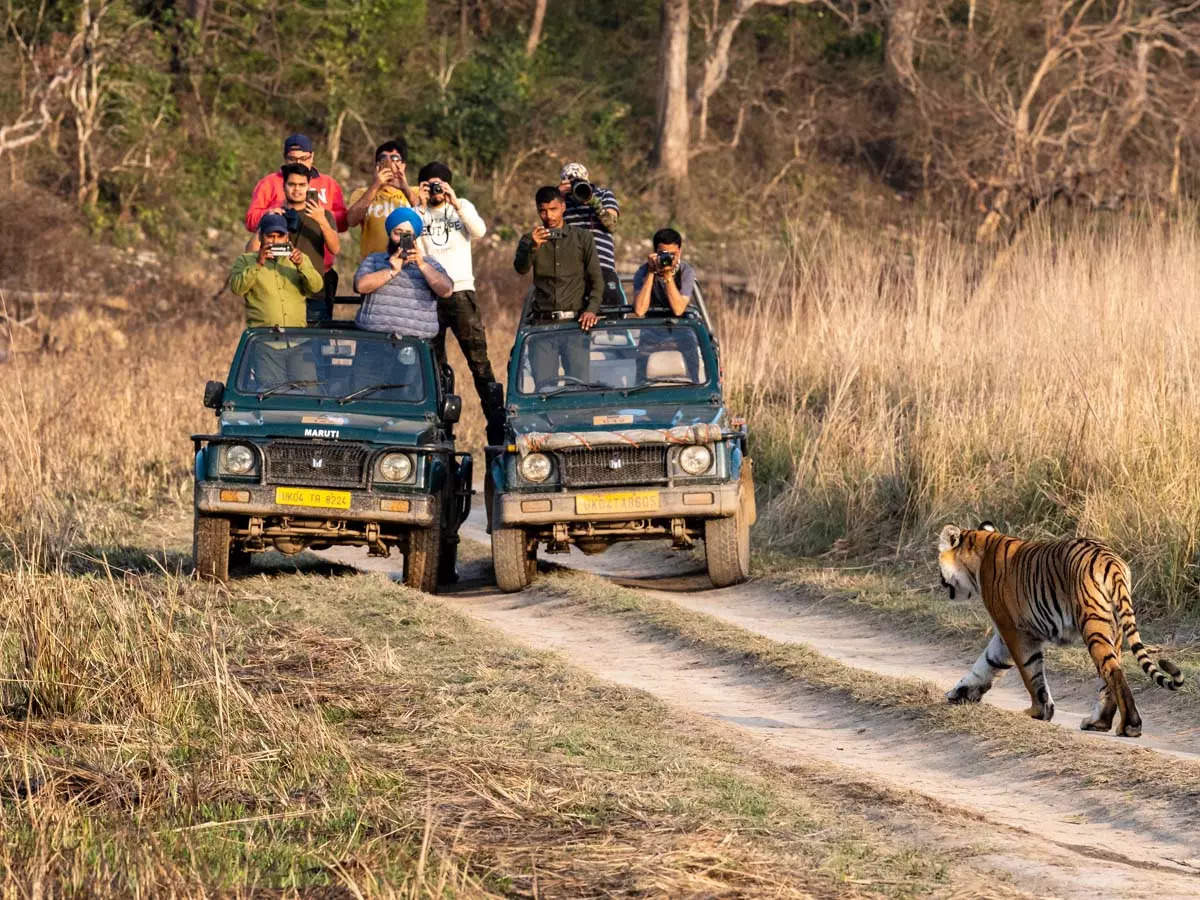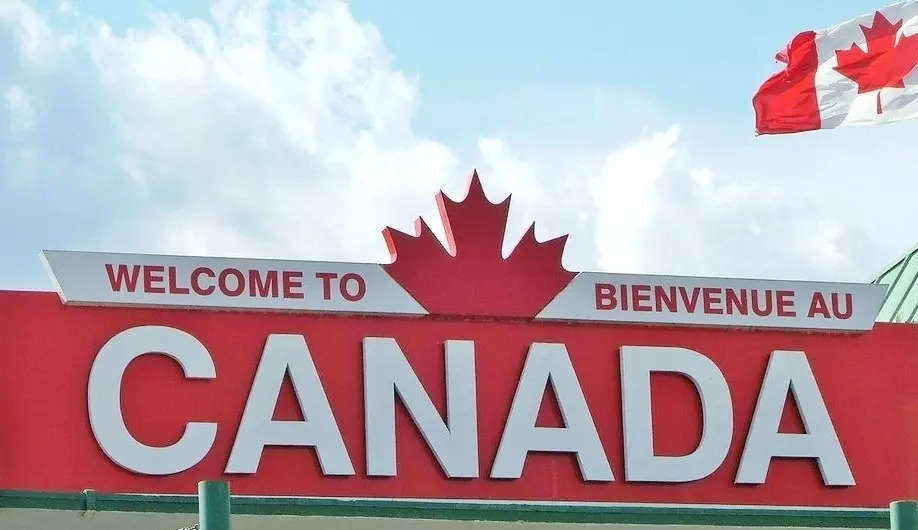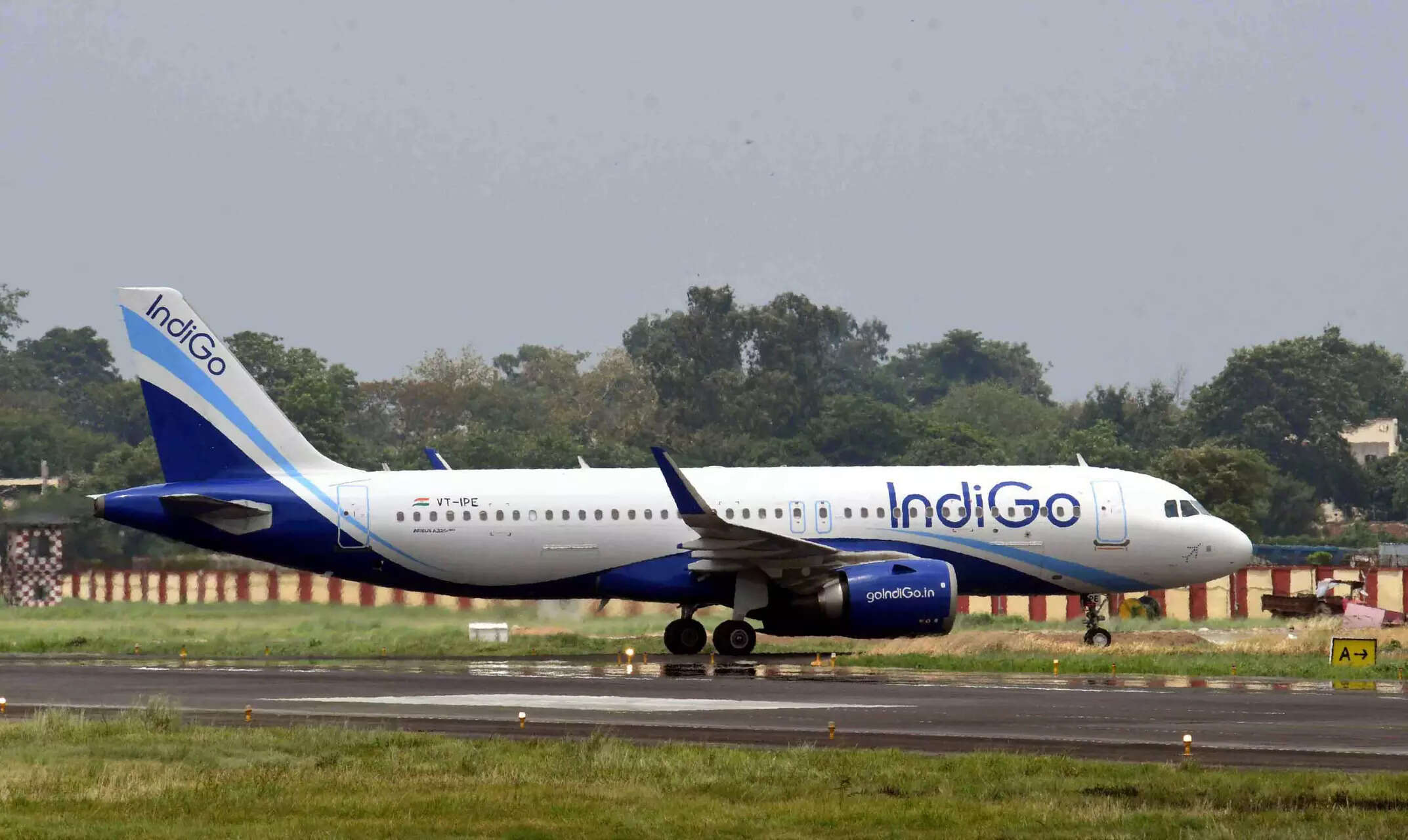
The Supreme Court took a significant step on Wednesday by prohibiting tiger safaris within the core areas of the Jim Corbett National Park, while also admonishing the Uttarakhand government for its involvement in unauthorised construction and tree felling activities within the region. This decision is anticipated to have repercussions on tourism and associated industries in the vicinity.However, the apex court granted permission for the establishment of tiger safaris in the peripheral and buffer zones of the Jim Corbett reserve, subject to certain conditions. Additionally, the court announced the formation of a committee to explore the feasibility of allowing tiger safaris in buffer or fringe regions of national parks across the country.
This ruling underscores the Supreme Court’s commitment to maintaining a delicate equilibrium between fostering tourism and safeguarding sensitive ecosystems. Moreover, the court directed the central government to form a committee tasked with devising strategies to mitigate environmental harm and to seek reimbursement from those accountable for the damage.
In its observations, the court emphasised the adverse consequences of introducing a tiger safari in the core area, highlighting its violation of tiger conservation regulations. While acknowledging the potential employment opportunities associated with safari tours in the buffer zone, the court stressed the importance of adhering to established guidelines.
The Supreme Court also rebuked the government over the unprecedented deforestation and environmental degradation in the tiger reserve, remarking that it had disregarded the public trust doctrine.
Furthermore, the apex court demanded a status report on illegal construction and tree felling in Corbett within three months, underscoring the significance of wildlife conservation as outlined in the national wildlife conservation plan.Earlier this year, the Supreme Court had dismissed the proposal by the National Tiger Conservation Authority (NTCA) to establish a tiger safari within national parks, advocating for an “animal-centric” approach over a “tourism-centric” one. Expressing skepticism, the bench questioned the rationale behind constructing zoos within wildlife sanctuaries, suggesting that such facilities could disrupt the natural movement of animals and spread diseases among them.
Presently, the Jim Corbett Reserve spans over 1,288.31 square kilometers, encompassing both core and buffer zones. It comprises six buffer zones, including Bijrani, Jhirna, Dhela, Dhikala, Durga, and Sitabani, which are integral to wildlife safaris.
According to the latest tiger census report, there are 260 tigers within the Corbett Tiger Reserve (CTR) and 229 outside the reserve. Local communities rely on tourism as a primary source of income, drawing visitors from both nearby areas and distant regions to the Jim Corbett National Park.
Situated in Nainital district of Uttarakhand, this tiger reserve was set up in 1936. It is India’s first National Park named after the environmentalist Jim Corbett. The place is filled with a variety of flora and fauna. One can find around 600 species of birds and some species of amphibians besides tigers.
[ad_2]
Source link

Recent reports from the World Travel & Tourism Council (WTTC) and Microsoft highlight the transformative power of AI (Artificial Intelligence) for travel and tourism, marking a commitment to a digital future with unparalleled customer experiences.
WTTC believes AI can play a pivotal role in delivering a tailored and enhanced experience now and in the future. As the global leader in Travel & Tourism, WTTC acknowledges the crucial importance of AI in revolutionising the sector.
Despite the increasing examples of AI applications in Travel & Tourism, the report reveals the sector lags other consumer-facing industries in AI adoption. AI’s surge across various sector’s last year is now a relevant force, and the Travel & Tourism sector must act now to leverage its impact, said the report.
Challenges that must be overcome by Travel & Tourism businesses include a shortage of AI-skilled workers, limited AI infrastructure, and the absence of a formal ‘AI strategy’ in many business plans.
Travel & Tourism businesses are urged to embrace AI as a strategic priority, investing heavily in talent to foster collaboration between humans and AI.
Amidst concerns about AI’s impact on jobs, the report addresses the potential for job creation, recognising that although AI will be disruptive, it will in turn generate new opportunities.
The AI technology, according to WTTC, can empower personalised recommendations and marketing strategies by analysing traveller data, optimising pricing strategies through real-time adjustments, and offering instant responses and fine-tuned interactions via sophisticated AI powered chatbots.
The report also highlights AI’s capabilities extend to predicting future demand patterns, efficiently allocating resources, and providing valuable insights for governments and Travel & Tourism stakeholders.
This contribution can be pivotal in promoting sustainability with efficient resource management by monitoring and minimising environmental impacts, ensuring a more responsible and sustainable sector.
“As we navigate the ever-evolving landscape of Travel & Tourism, AI emerges as a catalyst for positive change,” said Julia Simpson, WTTC President & CEO.
“The transformative capabilities highlighted in this report demonstrate that AI is not just a technological advancement, it is a strategic tool that can personalise the customer experience, drive sustainable improvements, and create real time pricing models.”
“Using Microsoft’s Azure OpenAI Models across the travel sector allows greater productivity for companies and drive a more personalised consumer experience. For travellers, the ability to drive more inspiration and personalized offers at booking to providing tools to consumers to proactively assist them while in destination to anticipate their needs with relevant information to improve their journey. For travel companies, GenAI is there to increase productivity, automate the predictable, and allow our human centric approach to the high value moments in travel to shine more,” stated Julie Shainock, Microsoft Managing Director Travel, Transport & Logistics. In the quest for sustainable AI practices within the Travel & Tourism sector, responsible data management emerges as a crucial strategy, the report mentioned.
Implementing measures such as data minimisation, efficient storage, and responsible data disposal, becomes pivotal for organisations seeking to minimise their carbon emissions when using new digital technologies, and reduce their AI environmental footprint significantly.
The report further explores AI applications in society and business, emphasising the need for safe and responsible AI system design in Travel & Tourism, signifying a milestone in the sector’s commitment to innovation and sustainability.
[ad_2]
Source link

Canada has announced that it is imposing an immediate two-year cap on new international student visas to tackle a housing crisis and target institutional “bad actors”, a move that is likely to impact Indians planning to study in the country. Immigration Minister Marc Miller said as part of the cap there will be a 35 per cent reduction in new study visas in 2024. The cap is expected to result in 364,000 new approved permits in 2024. Nearly 560,000 such visas were issued last year.
The cap will be in place for two years; the number of permits to be issued in 2025 will be reassessed at the end of this year, he said.
“To maintain a sustainable level of temporary residence in Canada, as well to ensure that there is no further growth in the number of international students in Canada for 2024, we are setting a national application intake cap for two years from 2024,” Global News quoted Miller as saying.
The move comes amid pressure on the federal government from provinces on the increasing numbers of non-permanent residents entering Canada while the country struggles with a housing crisis, CBC News said.
Miller earlier this month said that a cap on international students would not be a “one-size-fits-all solution” to housing shortages across Canada.
More than 800,000 international students were issued temporary study visas in 2022. Miller said last fall that 2023’s numbers were on track to be more than triple the number accepted 10 years ago.
The move is expected to impact students from India who see Canada as a preferred destination for higher studies.
India was the first among the top ten origin countries of study permit holders in 2022 in Canada, with a total of 319,000 students.
Miller said that by imposing the cap, the federal government is taking action against some small private colleges.
The move will help the government to target institutional “bad actors”, he said.
“It’s unacceptable that some private institutions have taken advantage of international students by operating under-resourced campuses, lacking supports for students and charging high tuition fees all the while significantly increasing their intake of international students,” Miller said.
In some provinces, Miller said, the total reduction in permits will be approximately 50 per cent.
Provinces and territories will be left to decide how permits are distributed among universities and colleges in their jurisdictions. The cap will be in place for two years; the number of permits to be issued in 2025 will be reassessed at the end of this year.
In an interview with CBC News on Monday, Miller spoke of “degree-granting institutions that are giving fake business degrees” to students who hope to stay in Canada. The minister said there could be “hundreds” of such schools operating in Canada and that the number has “exploded in the last couple of years.”
In addition to the cap, the federal government will also require international students applying for a permit to provide an attestation letter from a province or territory.
“These measures are not against individual international students,” Miller said.
“They are to ensure that as future students arrive in Canada, they receive the quality of education that they signed up for and the hope that they were provided in their home countries.”
Miller also announced changes to the post-graduation work permit programme.
Starting in September, international students who begin a programme that’s part of a curriculum licensing arrangement (one where a private college has been licensed to deliver the curriculum of an associated public college) will no longer be eligible for a post-graduation work permit.
Graduates of master’s and other “short graduate-level programmes” will “soon” be able to apply for a three-year work permit, the government says. Open work permits will also be made available to the spouses of international students in master’s and doctoral programs.
The changes announced Monday come a little over a month after Miller first announced measures intended to target what the minister described as “the diploma equivalent of puppy mills.”
Conservative Leader Pierre Poilievre said the blame lies entirely with Prime Minister Justin Trudeau and called the prime minister “incompetent.”
“He is the one that granted the study permits. That is a federal responsibility,” Poilievre said.
Jenny Kwan, the New Democratic Party leader, also blamed Trudeau‘s “mismanagement.”
She also warned that the new cap “might punish talented students who seek to build a better life.”
In a media statement, Ontario’s Minister of Colleges and Universities Jill Dunlop said her government recognises that “some bad actors are taking advantage of these students with false promises of guaranteed employment, residency and Canadian citizenship.”
The minister said Ontario has been engaging with the federal government on “ways to crack down on these practices, like predatory recruitment.”
A statement issued by Nova Scotia’s department of advanced education said the province “will need to assess the impacts of the changes made by the federal government once we have more details, including provincial allocations.”
[ad_2]
Source link

Since the widespread use of the internet, the emergence of online travel agencies (OTAs) and travel meta search engines has significantly changed the landscape of the travel industry. The India online travel market brought in USD 15.60 billion in revenue in the current year and is anticipated to grow by 10.49% over the course of the forecast year (2023-2028), as per Mordor Intelligence.
This growth can be attributed to the convenience and accessibility offered by such engines, which allow travelers to compare prices, read reviews, and book their trips with just a few clicks.
With the increasing penetration of smartphones and internet connectivity, more and more people are turning to meta search platforms for their travel needs, making it a highly competitive market with immense potential for further growth.
Convenience and customisation
Online travel agencies, like other internet retailers, provide the ease of booking travel plans at any time and from any location, allowing you to compare costs, read reviews, and make informed decisions. Furthermore, from selecting precise seats on a flight to choosing the exact room in a hotel, you can personalise your vacations to ensure your preferences are honored.Breadth of choice
Travel marketplaces provide you with a wide selection of experiences and pricing points if you are searching for something specific, just as e-commerce does for customer research and price comparison. As a result, by using meta search engines you can considerably expand the number of possibilities available to you. Furthermore, you can access a large choice of alternatives for flights, hotels and alternative accommodation from hundreds of providers all around the world with only a few clicks. You can also compare costs, read reviews, and make educated decisions depending on your interests and budget.Online travel agencies: Influencing the travel industry
Online travel agencies have revolutionised how we search for, book, and experience our travels. They aggregate vast amounts of information and provide you with the tools to find the best deals. This democratisation of travel planning has expanded the horizons of millions of people, making it easier for us to explore the world.
For the travel industry, meta search engines have presented opportunities for growth. Smaller hotels and airlines can reach a global audience without the need for an extensive marketing and distribution network. OTAs have allowed them to compete effectively with larger players, leveling the playing field and driving competition. However, it’s not all smooth sailing.
Towards the end
According to Research and Market, the global market for online travel booking platforms, which was valued at USD 1.1 trillion in 2022, is anticipated to increase at a CAGR of 14.4% between 2022 and 2030 to reach USD 2 trillion.
Due to the growth in traction, many businesses in the travel industry are spending more on marketing and advertising to differentiate themselves from the competition and attract customers. Additionally, OTAs have transformed the travel booking process by enabling smaller hotels and airlines to access a worldwide audience and successfully compete with more established firms.
The author is General Manager (India), Wego
DISCLAIMER: The views expressed are solely of the author and ETTravelWorld.com does not necessarily subscribe to it. ETTravelWorld.com shall not be responsible for any damage caused to any person/organisation directly or indirectly.
[ad_2]
Source link

Country’s largest carrier IndiGo has announced the imposition of ‘fuel charges’ on all passengers tickets on domestic and international flights to battle rising fuel prices. The company in a statement said that decision has been taken to offset rising ATF prices, which has increased significantly in the last three months.
The fuel charge is effective 00:01hrs October 06, 2023. ATF accounts for a substantial portion of an airline’s operating expenses, taking up almost 40 per cent of the operational cost. IndiGo said the move was inevitable for necessitating fare adjustment and address cost surge.
How it will impact fliers?
The fuel charge will be added to the passenger’s ticket cost which can lead up to an increase of INR 1,000 on any flight ticket. IndiGo has formulated a pricing structure according to which they will be charged the new fuel fee based on distance they travel on any sector.
The airline said it remains committed to offer affordable fares to its customers and mentioned that it will also publish the tariff sheet subsequently, with the sector-wise charges that can be viewed on its website.
Under this pricing structure, passengers booking IndiGo flights will incur a fuel charge, per sector, based on the sector distance. The move is also likely to prompt other airlines to follow the suit and start charging fee from passengers, which will eventually make flying costly for passengers.
Why IndiGo took this decision?
The decision comes after sharp increase in the Aviation Turbine Fuel (ATF) prices in recent months. From October 1, jet fuel prices for domestic airlines experienced a 5 per cent increase, reaching their highest levels for the year.
This monthly price hike marks the fourth consecutive one and is attributed to rising international prices of crude oil and jet fuel. Consequently, airlines may face additional financial pressure, potentially resulting in higher airfares during the upcoming festival season when travel demand typically surges. ATF prices have surged by over 32 per cent since June this year, currently standing at their highest point since November of the previous year.According to data from oil companies, jet fuel in Delhi after the price hoke costs INR 1,18,199.18 per kilolitre, up over 5 per cent from last month.
Airlines including IndiGo previously imposed a fuel surcharge in 2018, which was gradually removed as fuel prices decreased.
[ad_2]
Source link










